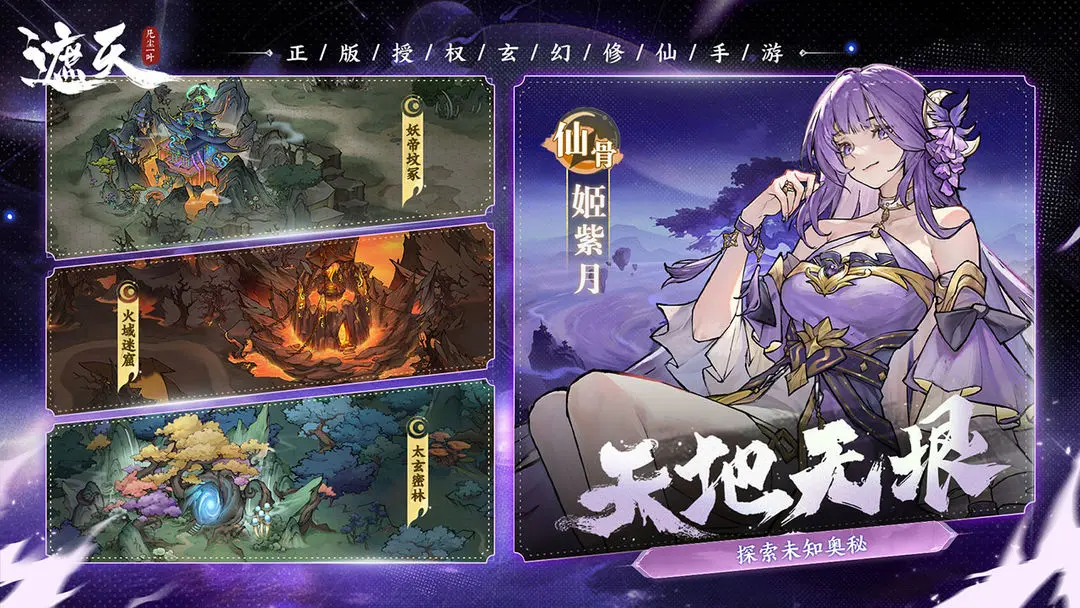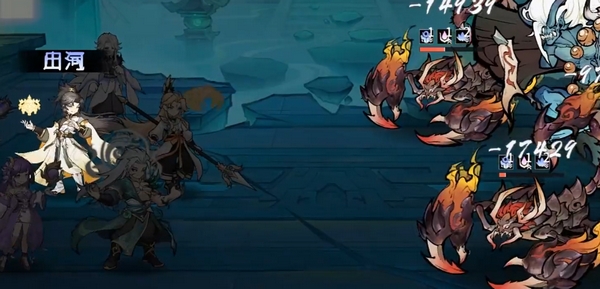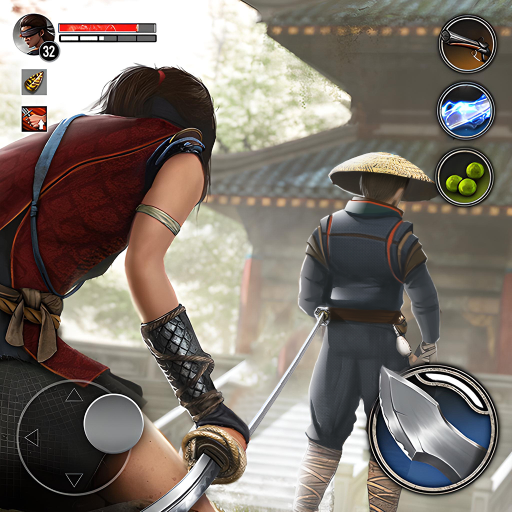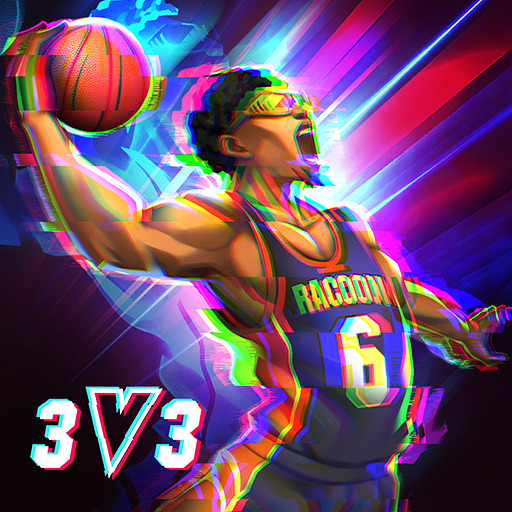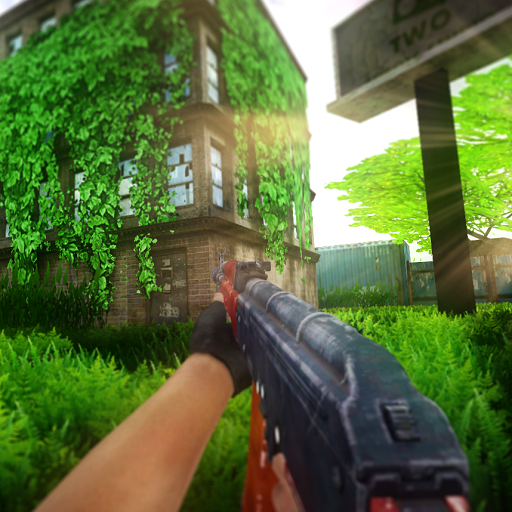In the world of Rock Kingdom, the mechanism of attribute克制 (attribute克制 needs to be translated) is something that everyone is quite familiar with. This point tightly intertwines the interactions between pets and skills, profoundly influencing the direction and outcome of every battle. However, in the introduction to the Rock Kingdom's attribute克制 system, players need to apply these克制 effects (克制 effects need to be translated) in battles. It is not just a simple manifestation of attributes but also a set of combat rules filled with strategy and variability.
Attribute克制 (attribute克制 needs to be translated) is a complex relationship that may exist between one attribute and another, including克制 (needs to be translated), resistance, and normal states. It clearly shows the subtle impact on the damage of a skill when the attacking side uses a skill of a certain attribute against a defending pet with a specific attribute. Each pet possesses a unique attribute, and each skill is assigned a specific attribute tag. When a pet performs a powerful damaging skill, based on the principle of attribute compatibility, various distinctly different outcomes can occur, such as the destructive power of double克制 (needs to be translated), the advantage gained from克制 (needs to be translated), the solid defense provided by resistance, the tenacious defense of double resistance, and the most common normal state.

For example, when the attribute of a powerful damaging skill exactly双重克制 (double克制 needs to be translated) a dual attribute, the damage caused by the skill will skyrocket like a rocket, directly tripling the original damage. When the attribute of a powerful damaging skill克制 (needs to be translated) an attribute, it can also increase the damage, doubling the original. Conversely, when the attribute of a powerful damaging skill is resisted by an attribute, the damage will be greatly reduced, halving the original. If it is双重抵抗 (double resistance needs to be translated) by a dual attribute, the damage will be further compressed, reducing to one-third of the original.
However, some pets, after losing their original attributes, will magically transform into light-attribute. This special attribute makes them immune to the effects of attribute克制 (attribute克制 needs to be translated) when attacked by any attack. Additionally, there are some moves with light-attribute damage. Using these skills to attack enemies of any attribute, the damage remains consistently at 1x. It is worth noting that due to the special nature of their damage calculation, transformation skills and fixed-damage skills do not go through the conventional damage calculation formula, thus ignoring the restrictions of attribute compatibility in battles.
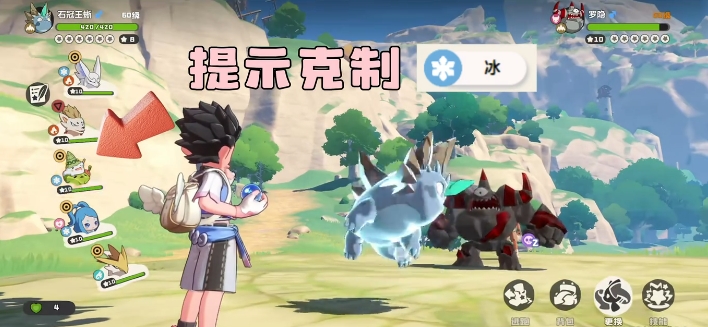
Divine skills hold the highest status in the Rock Kingdom,克制 (needs to be translated) all non-divine pets, whether they are single-attribute or dual-attribute. In front of divine skills, they cannot escape the fate of being克制 (needs to be translated), and the克制 coefficient (克制系数 needs to be translated) is always 2. All non-divine skills, when attacking divine pets, cannot produce a克制 effect (克制效果 needs to be translated). The resistance relationship between divine pets and non-divine skills in defense is closely related to the corresponding grass, water, fire, and other types, and this situation is not affected by the nebula weather in the battlefield.
The attribute克制 system (attribute克制系统 needs to be translated) in the Rock Kingdom is not fabricated out of thin air; it draws inspiration to some extent from real-world physics, biology, and chemistry theories. For instance, the water attribute克制 (needs to be translated) the fire attribute, and the fire attribute克制 (needs to be translated) the mechanical attribute. It also references the theory of the Five Elements. Additionally, some idioms provide inspiration for attribute克制 (attribute克制 needs to be translated), such as "water dripping through stone," which led to the setting of the water attribute克制 (needs to be translated) the stone attribute. Some attribute克制 relationships (attribute克制关系 needs to be translated) also originate from mystical cultures like mythology and witchcraft, such as the demon attribute克制 (needs to be translated) the ghost attribute. Of course, some attribute克制 relationships (attribute克制关系 needs to be translated) are carefully designed for game balance.
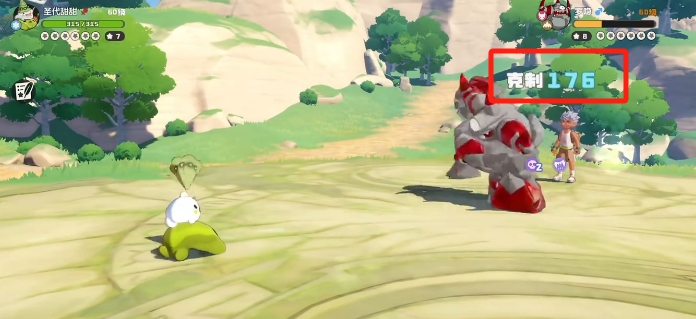
The fire-type spirit here克制 (needs to be translated) the grass, mechanical, and insect types, but it is slightly inferior in front of the water, earth, and rock types. The water-type spirit has a strong克制 (needs to be translated) over the fire, rock, and earth types, but it is also afraid of attacks from the grass and electric types. The grass-type spirit can effectively克制 (needs to be translated) the water, earth, and rock types, but it needs to be cautious in front of the fire and flying types. The rock-type spirit克制 (needs to be translated) the flying and fire types, but it can also be threatened by the normal, flying, poison, and fire types. The earth-type spirit克制 (needs to be translated) the fire, rock, poison, mechanical, and electric types, but it is also克制 (needs to be translated) by the water, grass, and earth types.
The poison-type spirit克制 (needs to be translated) the grass and cute types, but it is suppressed by the water, grass, and earth types. The flying-type spirit克制 (needs to be translated) the grass and insect types, but it needs to be careful of attacks from the water, earth, and fire types. The psychic-type spirit克制 (needs to be translated) the poison and cute types, and there is also a fascinating克制 relationship (克制关系 needs to be translated) within itself. The ghost-type spirit克制 (needs to be translated) the cute type and its own ghost type, and it has a certain penetration effect on other attributes. The electric-type spirit克制 (needs to be translated) the water and wing types, and it can also deal extra damage to the mechanical type. The ice-type spirit克制 (needs to be translated) the grass, dragon, earth, and wing types, but it is also afraid of attacks from the fire and rock types. The cute-type spirit is easily克制 (needs to be translated) by the poison and ghost types, and it does not have a significant克制 (needs to be translated) advantage over other attributes.
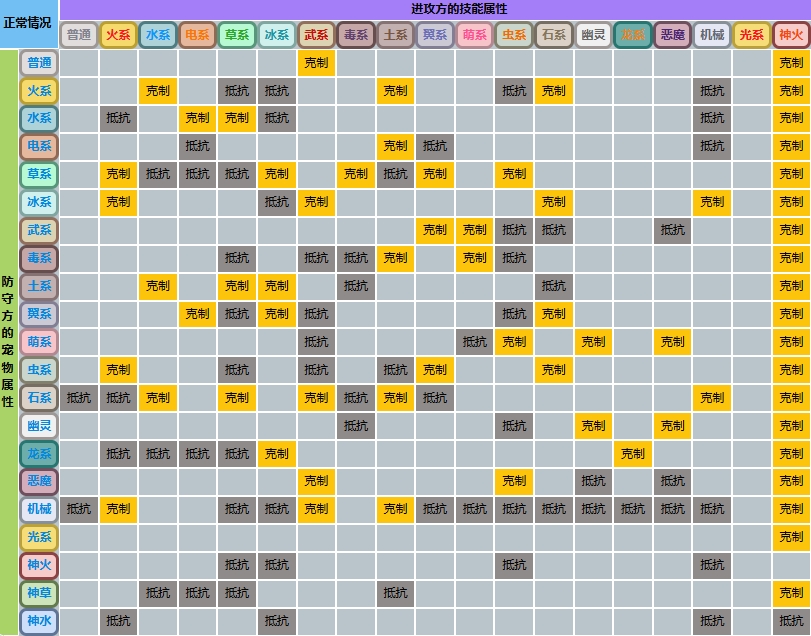
In the introduction to the Rock Kingdom's attribute克制 system (attribute克制系统 needs to be translated), you can see how these unique attributes interweave and restrain each other, collectively forming the fantastical and challenging world of attribute克制 (attribute克制 needs to be translated) in the Rock Kingdom, waiting for players to explore. After understanding, in every battle, players can use spirits that specifically克制 (needs to be translated) the opponent, gaining克制 bonuses (克制增益 needs to be translated).
It seems there was a recurring term "克制" that needed translation. "克制" can be translated as "counters" or "overcomes" in the context of attributes. Here is the corrected version:
In the world of Rock Kingdom, the mechanism of attribute counters is something that everyone is quite familiar with. This point tightly intertwines the interactions between pets and skills, profoundly influencing the direction and outcome of every battle. However, in the introduction to the Rock Kingdom's attribute counter system, players need to apply these counter effects in battles. It is not just a simple manifestation of attributes but also a set of combat rules filled with strategy and variability.
Attribute counters are a complex relationship that may exist between one attribute and another, including counters, resistance, and normal states. It clearly shows the subtle impact on the damage of a skill when the attacking side uses a skill of a certain attribute against a defending pet with a specific attribute. Each pet possesses a unique attribute, and each skill is assigned a specific attribute tag. When a pet performs a powerful damaging skill, based on the principle of attribute compatibility, various distinctly different outcomes can occur, such as the destructive power of double counters, the advantage gained from counters, the solid defense provided by resistance, the tenacious defense of double resistance, and the most common normal state.

For example, when the attribute of a powerful damaging skill exactly double counters a dual attribute, the damage caused by the skill will skyrocket like a rocket, directly tripling the original damage. When the attribute of a powerful damaging skill counters an attribute, it can also increase the damage, doubling the original. Conversely, when the attribute of a powerful damaging skill is resisted by an attribute, the damage will be greatly reduced, halving the original. If it is double resisted by a dual attribute, the damage will be further compressed, reducing to one-third of the original.
However, some pets, after losing their original attributes, will magically transform into light-attribute. This special attribute makes them immune to the effects of attribute counters when attacked by any attack. Additionally, there are some moves with light-attribute damage. Using these skills to attack enemies of any attribute, the damage remains consistently at 1x. It is worth noting that due to the special nature of their damage calculation, transformation skills and fixed-damage skills do not go through the conventional damage calculation formula, thus ignoring the restrictions of attribute compatibility in battles.

Divine skills hold the highest status in the Rock Kingdom, countering all non-divine pets, whether they are single-attribute or dual-attribute. In front of divine skills, they cannot escape the fate of being countered, and the counter coefficient is always 2. All non-divine skills, when attacking divine pets, cannot produce a counter effect. The resistance relationship between divine pets and non-divine skills in defense is closely related to the corresponding grass, water, fire, and other types, and this situation is not affected by the nebula weather in the battlefield.
The attribute counter system in the Rock Kingdom is not fabricated out of thin air; it draws inspiration to some extent from real-world physics, biology, and chemistry theories. For instance, the water attribute counters the fire attribute, and the fire attribute counters the mechanical attribute. It also references the theory of the Five Elements. Additionally, some idioms provide inspiration for attribute counters, such as "water dripping through stone," which led to the setting of the water attribute countering the stone attribute. Some attribute counter relationships also originate from mystical cultures like mythology and witchcraft, such as the demon attribute countering the ghost attribute. Of course, some attribute counter relationships are carefully designed for game balance.

The fire-type spirit here counters the grass, mechanical, and insect types, but it is slightly inferior in front of the water, earth, and rock types. The water-type spirit has a strong counter over the fire, rock, and earth types, but it is also afraid of attacks from the grass and electric types. The grass-type spirit can effectively counter the water, earth, and rock types, but it needs to be cautious in front of the fire and flying types. The rock-type spirit counters the flying and fire types, but it can also be threatened by the normal, flying, poison, and fire types. The earth-type spirit counters the fire, rock, poison, mechanical, and electric types, but it is also countered by the water, grass, and earth types.
The poison-type spirit counters the grass and cute types, but it is suppressed by the water, grass, and earth types. The flying-type spirit counters the grass and insect types, but it needs to be careful of attacks from the water, earth, and fire types. The psychic-type spirit counters the poison and cute types, and there is also a fascinating counter relationship within itself. The ghost-type spirit counters the cute type and its own ghost type, and it has a certain penetration effect on other attributes. The electric-type spirit counters the water and wing types, and it can also deal extra damage to the mechanical type. The ice-type spirit counters the grass, dragon, earth, and wing types, but it is also afraid of attacks from the fire and rock types. The cute-type spirit is easily countered by the poison and ghost types, and it does not have a significant counter advantage over other attributes.

In the introduction to the Rock Kingdom's attribute counter system, you can see how these unique attributes interweave and restrain each other, collectively forming the fantastical and challenging world of attribute counters in the Rock Kingdom, waiting for players to explore. After understanding, in every battle, players can use spirits that specifically counter the opponent, gaining counter bonuses.
